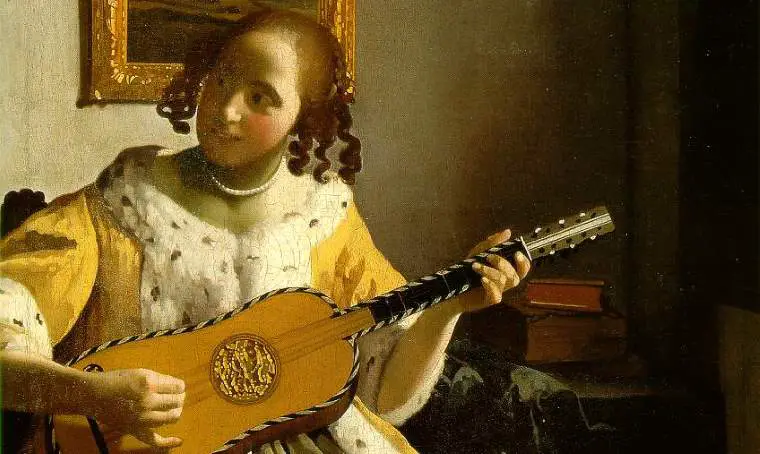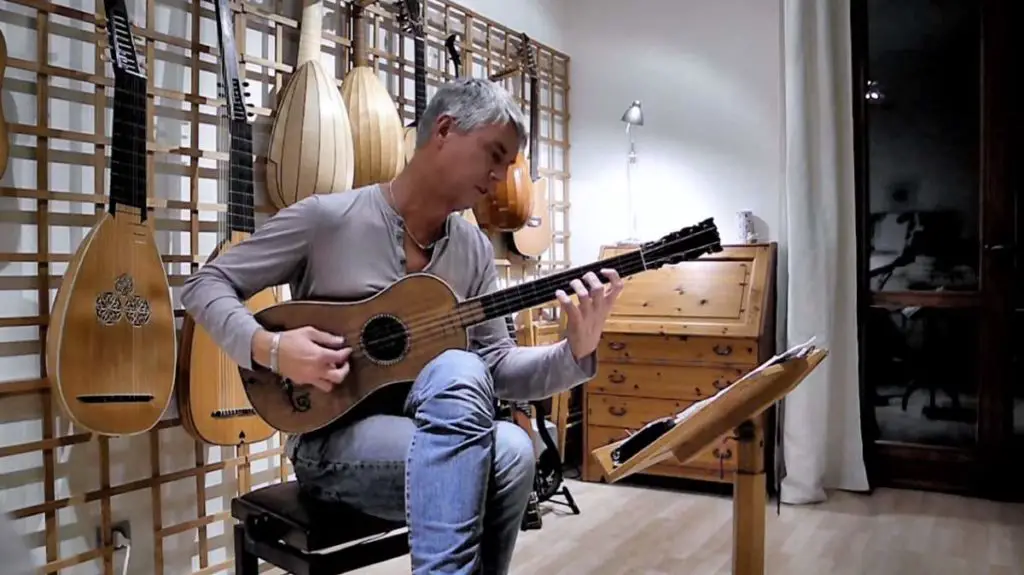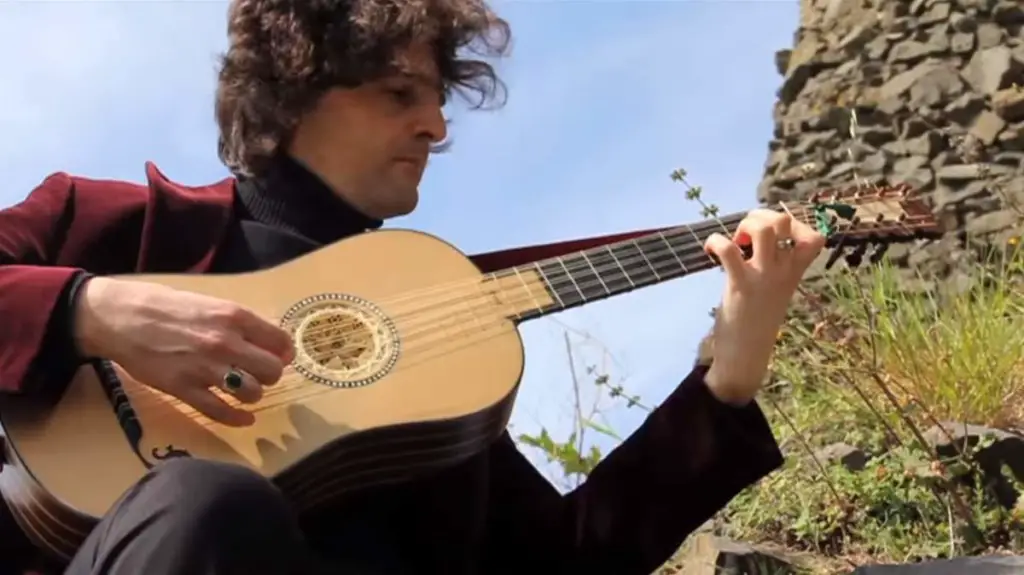Norwegian concert guitarist and early music specialist Rolf Lislevand plays Tarantella by the Spanish guitarist and composer Santiago de Murcia (25 July 1673 – 25 April 1739). Lislevand is playing the Sabionari guitar here, one of the five surviving guitars made by Antonio Stradivari. It is built in 1679 and at the present time, it is the only playable Stradivari guitar in the world.
Antonio Stradivari

Antonio Stradivari (1644 – 18 December 1737) was an Italian luthier and a crafter of stringed instruments such as violins, cellos, guitars, violas, and harps. Stradivari is generally considered the most significant artisan in this field.
The Latinized form of his surname, Stradivarius, as well as the colloquial “Strad” are terms often used to refer to his instruments. The Hills Violin Shop estimates that Antonio produced 1,116 instruments, of which 960 were violins. It is also estimated that around 650 of these instruments survive, including 450 to 512 violins.
The Sabionari Guitar

Antonio Stradivari built the Sabionari guitar in 1679. From the mid-18th century through the early 19th century, the guitar evolved into a six-string instrument. At the beginning of the 19th century, like many other baroque guitars, the Sabionari guitar was modified to follow the style of the modern classical guitar.
In recent years, historic musical instruments experts Daniel Sinier and Francoise de Ridder restored it back to its original baroque configuration, with four double catgut strings (A D G B) and a single E string. This restoration is documented in the fall 2014 #119 issue of American Lutherie, a unique publication that focuses on all aspects of the art, craft, and science of stringed instrument making and repair.
Now veteran luthier, restorer, and publisher Lorenzo Frignani maintains the instrument and keeps it in usable condition.

Related: La Rossignol [Duet for two guitars]
Rolf Lislevand

Rolf Lislevand (1961, Oslo, Norway), is a performer of Early music specializing in lute, vihuela, baroque guitar, and theorbo.
From 1980 to 1984, Lislevand studied classical guitar at the Norwegian Academy of Music. In 1984 he entered the Schola Cantorum Basiliensis in Switzerland, under the tutelage of lutenists Hopkinson Smith and Eugène Dombois up to 1987.
Since his first album as a main artist with works from the “Libro Quarto d’intvolatura di Chitarrone” by composer Hieronymus Kapsberger, he has gained various awards: Diapason d’Or, Choc du Monde de la Musique, 10 de Répertoire, etc.
In 1991 he played as part of the sound-track to the French film Tous les Matins du Monde.
Sources
- Antonio Stradivari on Wikipedia
- Rolf Lislevand on Wikipedia
